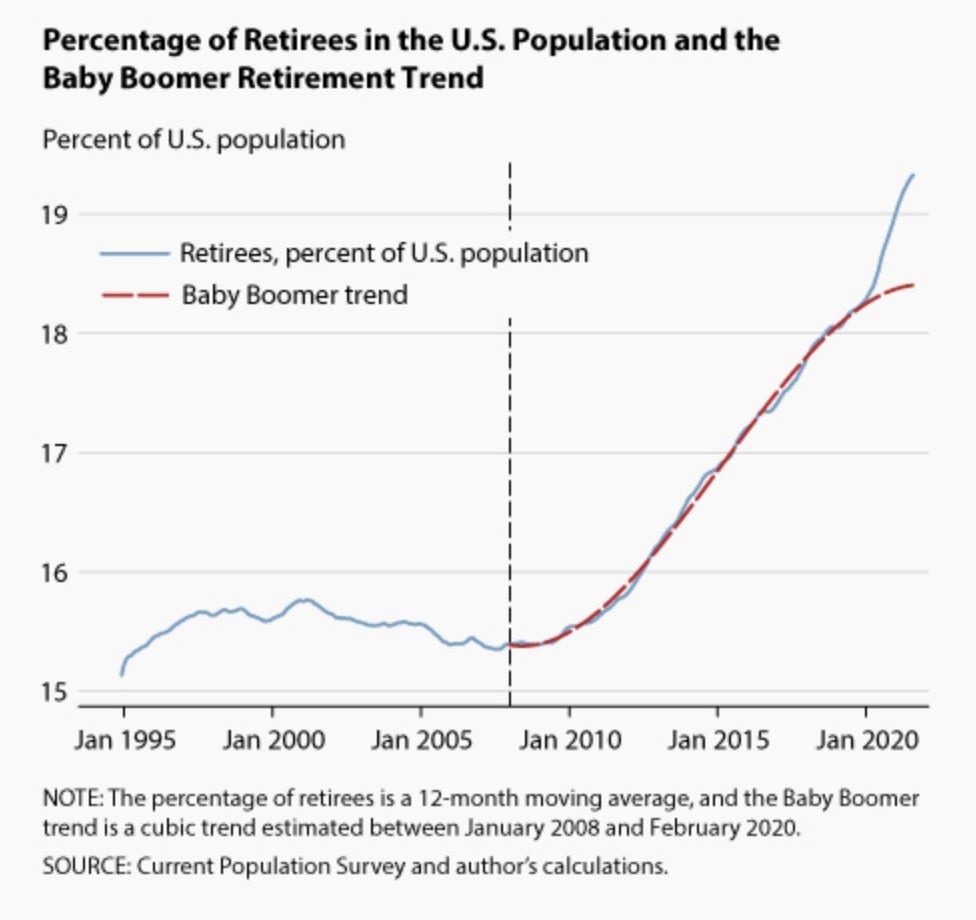The pandemic forced 3 million of America’s baby boomers into unexpected retirement
Since the beginning of the pandemic, more than 5 million people have dropped out of the US labor force. Most of them were baby boomers who took early retirement, an analysis by Miguel Faria e Castro, a senior Federal Reserve economist, suggests.


Since the beginning of the pandemic, more than 5 million people have dropped out of the US labor force. Most of them were baby boomers who took early retirement, an analysis by Miguel Faria e Castro, a senior Federal Reserve economist, suggests.
He compared projected retirement trends for baby boomers to actual retirements to get at the number of people who would likely still be working were it not for covid-19. That figure, known as “excess” retirees, was 3 million from March 2020, when the pandemic started, to August of this year.
Faria e Castro, who works out of the St. Louis Fed, said being more vulnerable to covid-19 might have pushed older Americans to leave their jobs sooner than anticipated. Rising asset prices likely played a role as well, by increasing baby boomer homeowners’ sense of financial stability.

That doesn’t mean these retirees are permanently out of the labor force. In the past, older workers who retired during recessions took jobs again when conditions improved. But it’s not as easy as flipping a switch—it takes time for employers to hire people with more skills and experience.
Still, some older workers see benefits in retiring even if they plan to rejoin the workforce later, said former Federal Reserve economist Claudia Sahm who is now a current senior fellow at the Jain Family Institute. Rather than slogging through a long job search, they might prefer to present themselves to the world as retired until they can work again, she added.
So, some of those covid-19 retirees might come back into the labor force, assuming they can. “You can un-retire, you can work part time, you can go back, you can do consulting,” Sahm said. “But there has to be a job for you.”